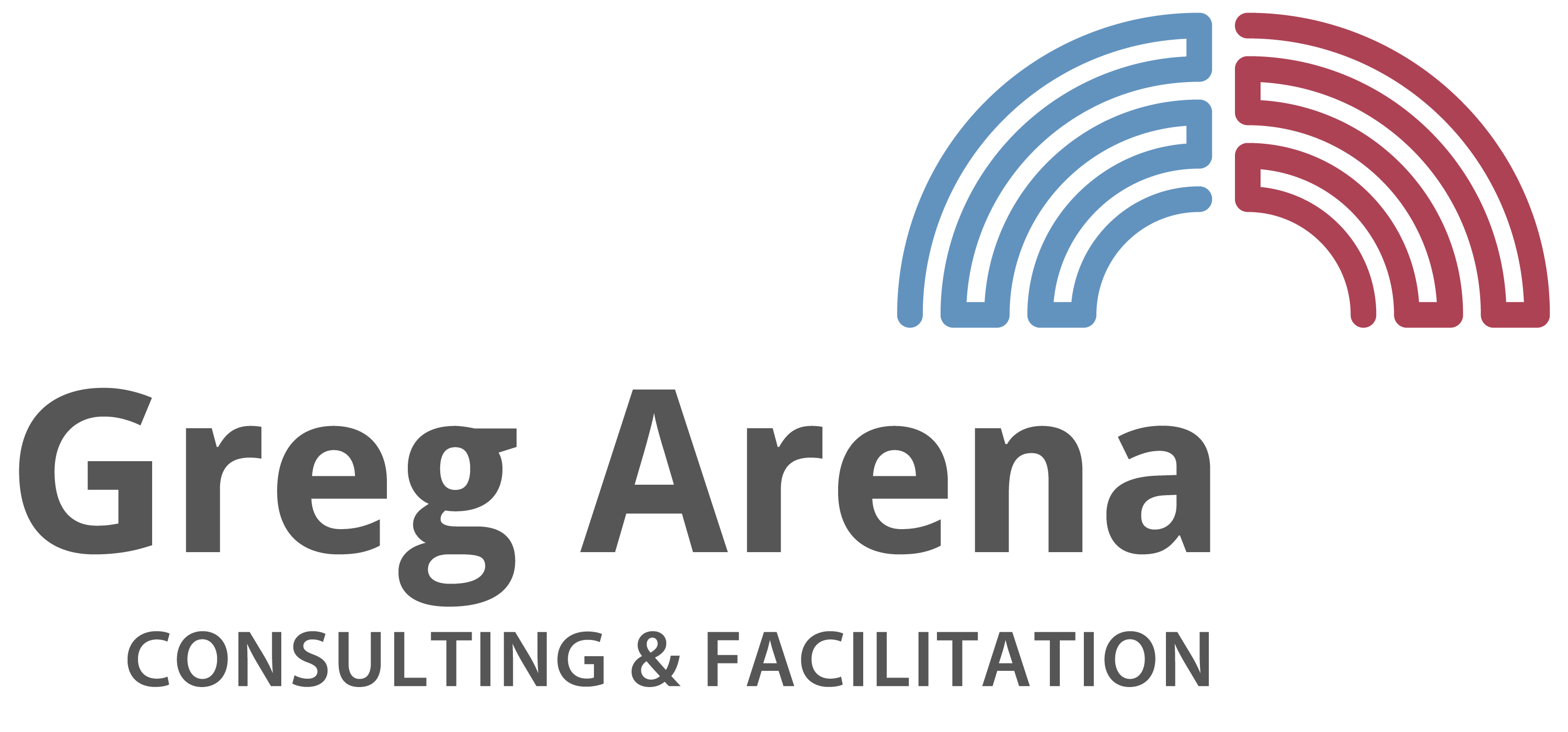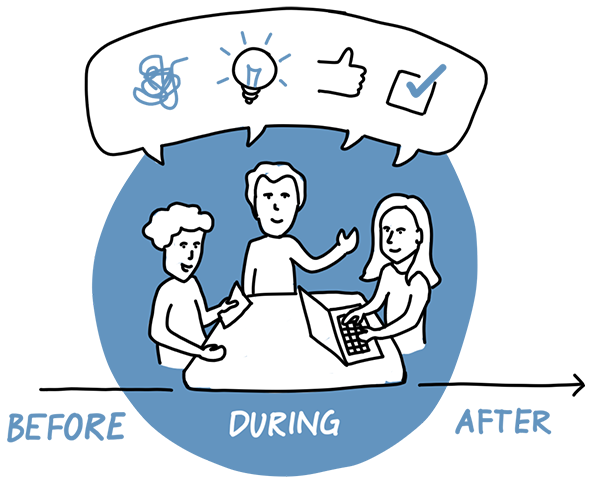Effective Meetings
Meetings consume a lot of time, much of which is perceived as unproductive. Meetings are also the platform where the culture of a team is revealed and can be changed. Effective Meetings is about ensuring more impactful collaboration and using the available time in meetings more effectively.
Topics areas
- Meeting landscape: Number of meetings and participants per meeting.
- Meeting preparation: Participants, information, agenda, meeting objective and objective per agenda item.
- Meeting execution: Methods, participant engagement, decision-making, facilitation.
- Post-meeting: Minutes, follow-up.
- Retrospective: Continual improvement of all meetings aspects.
Why should we invest in our meetings?
- Statistically, office workers spend an average of 50% of their time in meetings; they report that 50% of that time is unproductive. That's 25% of their average working time! Even small improvements can have a significant impact.
- Improving meetings is thus a relatively easy way to work both more effectively and more efficiently.
- Meetings are where most decisions are prepared and/or made. If the basis for these decisions is better, better decisions will be made, in many cases, more quickly.
- How we treat each other is mirrored - and learned - in meetings. Meeting quality therefore has a big impact on the well-being of employees.
What are typical meetings challenges that I help to address?
- Pre-meeting: Are the right people being invited to meetings, i.e. the ones that are able to make the most valuable contribution to the meeting's outcome? Has enough thought been given to the desired outcome per agenda point? Do the participants have the information they require, in order to produce the best possible outcome?
- During the meeting: Do one or two people dominate the discussion while others seem to be mentally absent? Do discussions frequently go in circles? Are decisions made in meetings, to which the participants are truly committed?
- Post-meeting: Do the minutes reflect the key points that the people affected require, in order to move forward? Are outcomes and To Dos formulated clearly? Is there sufficient follow-up on points of action?

Für wen ist mein Effektive Meetings Angebot geeignet?
For all organizations and teams within the organization, including the leadership teams.
How does Meeting Coaching work?
- The analysis phase consists of reviewing meeting documents, e.g. the agenda, observing a meeting and, if necessary, having the meeting participants answer a questionnaire.
- On this basis, potential opportunities for improvement with regard to the preparation, the execution and the follow-up of results are discussed, and fields of action are agreed upon.
- You receive support from me in the form of templates (e.g. agenda), methodology training (e.g. Time-to-Think or decision-making), and individual or team coaching (e.g. on preparing and running meetings), all with the aim of improving meeting quality and culture.
- All of my interventions are targeted at improving both meeting outcomes and meeting culture.

Testimonials
What my clients say
For many years I have worked with a wide variety of people and groups, all of whom have enriched my life. You can read here what some of them say about working with me.


Left & Right Brain Solutions
I don't work alone. Fortunately! I am supported by wonderful colleagues at Left & Right Brain Solutions and the network of which it is a part. Together, we are able to provide more value than the sum of our individual parts.

